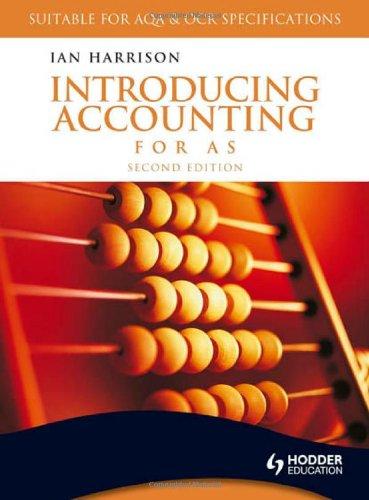The following errors have been discovered in the ledgers of Howard: 1. Howard had recently purchased shop
Question:
The following errors have been discovered in the ledgers of Howard:
1. Howard had recently purchased shop fittings £3,700 on credit from Minser. The item had been recorded in Howard’s journal as:

2. Repairs to his vehicle of £560, paid by cheque, had been entered as a debit in the vehicles account.
3. A purchase invoice for £281 had been destroyed and had not been entered in the purchase day book.
4. A cheque for £33 received from Roter had been entered as a credit in R Oter’s account.
5. Repairs carried out on Howard’s wife’s car of £612 had been entered on the debit side of the business motor expenses account.
Required
Identify the types of errors discovered in Howard’s ledger.
Although the prime function of a trial balance is to test the accuracy of our double-entry system, we often use a trial balance as a list from which we prepare our final accounts. This saves us much time.
However, if the trial balance fails to balance then we can rest assured that our final accounts will not balance.
When the trial balance fails to balance, the difference between the total of the debit side and the total of the credit side is placed in a temporary account called a ‘suspense account’.
If the debit column of the trial balance has a smaller total than the credit column we insert an item ‘suspense account’ in the debit column in order that the two columns will have the same total. If the total of the credit column of the trial balance is smaller than the total of the debit
column then the amount for suspense account would be inserted in the credit column.
We can then prepare a set of draft final accounts, safe in the knowledge that they will balance (provided we do not make any errors in their preparation).
Step by Step Answer:






